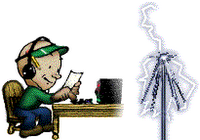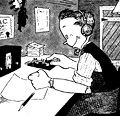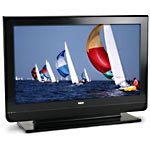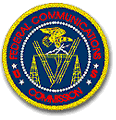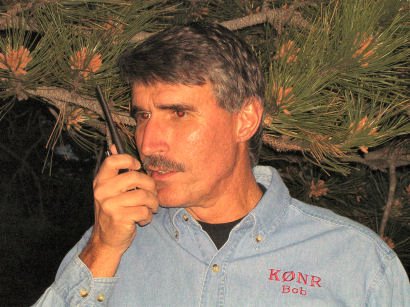Paul Rinaldo's Rule of Amateur Radio Progress
 Recently on the AMSAT-BB email list, there was a discussion about some new satellites about to be launched. Some folks criticized the implementation of the satellite hardware (as in "they should have done this instead of that.") Bob Bruninga, WB4APR, posted an excellent response that bears repeating:
Recently on the AMSAT-BB email list, there was a discussion about some new satellites about to be launched. Some folks criticized the implementation of the satellite hardware (as in "they should have done this instead of that.") Bob Bruninga, WB4APR, posted an excellent response that bears repeating:Paul Rinaldo's rule of Amateur Radio Progress:
Progress is made in Amateur Radio by letting energetic individuals move forward. Conversly, nothing in Amateur Radio is accomplished by complaining about other individual's projects. Simple summary: If you don't like their project, then go do or support your own choices. Get out of their way.
The service is where we are allowed to experiment as individuals. This means if you have an experiment, then do it. If someone else has an experiment you like, then contribute to it, support it, or get out of the way. It's the individuals that move forward and do something that makes Ham radio progress.
Conversely, Its all the naysayers, thought police, kibitzers, complainers, arm chair lawyers and couch potatos that hold much progress back. Not one cloud of their hot air will move anything forward. The only thing it does is make us all look like old fuds and many of the would-be progressives just throw in the towel and instead of a great hobby, they go get a real job instead.
So, again, Ham radio is an unbelievably diverse collection of intersts, modes, techniques, applications, projects, missions, activities, directions, places, groups, frequencies, bands, devices, propagation, tests, events and experiments. Choose
those you are interested in, jump in, contribute, move forward... Do not waste your time (and other's) trying to hold others back from their interests.NOTHING IS EVER ACCOMPLISHED PROGRESSIVELY BY TRYING TO FORCE
OTHERS INTO SPENDING THEIR TIME ON YOUR VIEW OF AMATEUR
RADIO.The best you can do is find other people that actually do something and support them in a direction you want and hang on for the ride. I call this Paul Rinaldo's rule of Amateur Radio, because I learned it back in the late 1970's or so when I was on the board of directors and Paul was president of AMRAD which was working on the AX.25 spec, and trying to develop the early East Coast Packet System. We all met frequently, and everyone had ideas of which way to go. It's the sentence that begins with "what they need to do is..." that Paul pointed out was pointless.
Or something like that. Over the years, in all the clubs and organizations of Amateur Radio, I find it the rule to live by. If you have an idea, do it. If someone else has an idea, either join it or support it. If it's a dumb idea, it will die, don't waste your time trying to assure its demise. But complaining about others people's progress just makes no sense to me.
Bob, WB4APR
